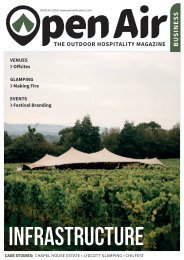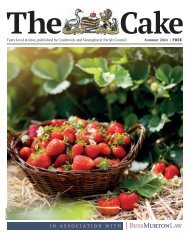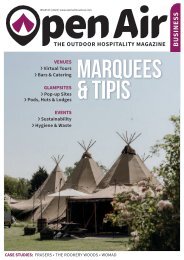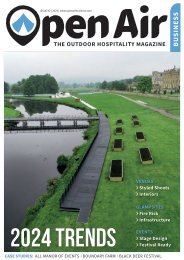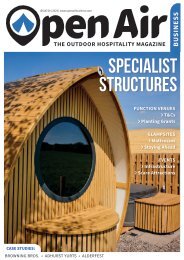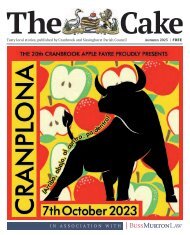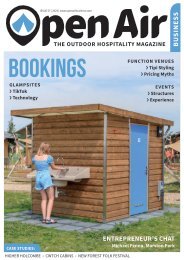Create successful ePaper yourself
Turn your PDF publications into a flip-book with our unique Google optimized e-Paper software.
HEALTH & WELLBEING<br />
Guy's Column<br />
Welcome to Guy Pullen, head of horticulture at the charity Hands of<br />
Hope in Hawkhurst. He will be writing a regular column on all aspects<br />
of his job from helping people’s well-being to growing everything<br />
from fruit to flowers<br />
When you look beyond life’s<br />
essentials, what sustains<br />
you as a human being?<br />
Friendship and human<br />
contact; good physical<br />
and mental health; a sense of use and<br />
purpose? We often take these for granted,<br />
but whether it’s through bereavement, ill<br />
health, redundancy, family breakdown or just<br />
plain old bad luck, living without them can be<br />
tough.<br />
At Hands of Hope we aim to tackle some of<br />
life’s thorny issues by connecting people with<br />
nature and each other. We offer opportunities<br />
to carry out meaningful work in a beautiful<br />
location and amongst friendly faces and in<br />
doing so, we tackle food poverty, loneliness<br />
and rural isolation as well as improving<br />
physical and mental health.<br />
Set within 23 acres of AONB land in<br />
Hawkhurst, Hope Farm Garden is a no-dig,<br />
organic market garden growing for food<br />
banks, lunch<br />
clubs and<br />
to tackle<br />
holiday<br />
hunger,<br />
“We garden using the<br />
no-dig system which aims<br />
to preserve the incredible<br />
life force that is soil.”<br />
as well as providing produce for our own veg<br />
box scheme. With only two paid gardeners<br />
working the land, we rely on volunteers to<br />
help us take the produce from seed to harvest<br />
and beyond. In return we offer a life affirming<br />
experience that you just can’t get in any other<br />
way.<br />
This winter, we have expanded our<br />
vegetable garden from 64 beds to 180 beds<br />
and this has taken some effort. Luckily our<br />
hardy volunteers have been keen to get stuck<br />
in and with a relatively dry winter, the work<br />
has run smoothly. We garden using the no-dig<br />
system which aims to preserve the incredible<br />
life force that is soil. For too long, it has been<br />
seen as something that can be bagged up and<br />
shunted around. We assume it will always just<br />
be there for us, but as with any living system,<br />
soil must be nurtured and protected.<br />
No-dig gardening does just this whilst<br />
reducing the need for watering and fertilizers.<br />
Digging on our heavy clay is hard work, so it’s<br />
good to demonstrate a better way.<br />
Beyond the vegetable garden, we have an<br />
orchard, beehives, woodland, fields, meadows<br />
and ponds, all of which need our attention.<br />
Every winter we lay some of the hedges in the<br />
traditional way and this has been one of our<br />
most popular events this year. Hedge-laying<br />
is an art, taking many years to perfect, but the<br />
learning has to start somewhere. After only<br />
one day, some of our volunteers felt confident<br />
enough to take on their own wayward hedges.<br />
Over the next issues of <strong>The</strong> <strong>Cake</strong>, I will<br />
focus on some of our core activities – the<br />
joys of volunteering, learning traditional<br />
countryside skills and more.<br />
22 <strong>The</strong> <strong>Cake</strong> • <strong>Spring</strong> <strong>2022</strong>




